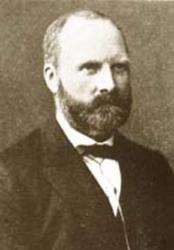1666 - 1698 Person Name: J. K. Schade Topics: Første Søndag i Faste Til Aftensang; First Sunday in Lent For Evening; Aandelig Strid; Tredie Søndag i Advent Til Aftensang; Third Sunday in Advent For Evening; Første Søndag i Faste Til Hoimesse; First Sunday in Lent High Mass; Tredie Søndag i Faste Til Aftensang; Third Sunday in Lent For Evening; 9 Søndag efter Trefoldigheds Fest Til Aftensang; Ninth Sunday after Trinity Sunday For Evening; 21 Søndag efter Trefoldigheds Fest Til Aftensang; Twenty-first Sunday after Trinity Sunday For Evening; Alle Helgens Dag Til Hoimesse; All Saints Day High Mass; All Saints Day For Evening Translator of "Vær i Korset tro og stille" in M. B. Landstads Kirkesalmebog og "Nokre Salmar" ved Professor Dr. E. Blix, samt følgende tillæg Schade, Johann Caspar, son of Jakob Schad or Schade, pastor and decan at Kühndorf, near Suhl, in Thuriugia, was born at Kühndorf, Jan. 18, 1666. He entered the University of Leipzig in 1685 (where he became a great friend of A. H. Francke), and then went to Wittenberg, where he graduated M.A. in 1687. On his return to Leipzig he began to hold Bible readings for the students. This soon raised ill-will against him among the Leipzig professors, and when, in 1690, he was invited to become diaconus at Würzen, near Leipzig, they interfered and prevented his settlement. In 1691 he was invited to become diaconus of St. Nicholas's church, at Berlin (where P. J. Spener had just become probst, or chief pastor), and entered on his work there on the 2nd Sunday in Advent. In his later years he raised a storm of feeling against himself by refusing to hear private confessions. The Elector of Brandenburg, in order to end the strife, appointed him, in June 1698, pastor at Derenburg, near Halberstadt. Meantime he was seized with a fever, which ended fatally at Berlin, July 25, 1698 (Koch, iv. 222, 468; Wetzel, iii. p. 23, &c).
Schade was a most earnest and faithful pastor and preacher, and specially interested himself in the children of his flock. As a hymnwriter he was not particularly prolific, but of his 45 hymns a good many passed into the German hymnbooks of the period. His hymns are clear and simple in style, are composed in a considerable variety of metres, and are full of fervent love to the Lord Jesus, and of zeal for a living and practical Christianity; but they are frequently spun out, or are too subjective. A number appeared in A. Luppius's Andächtig singender Christenmund Wosel, 1692-94, and in the Geistreiches Gesang-Buch, Halle, 1697. They were collected and posthumously published as Fasciculus Cantionum, Das ist zusammen getragene geistliche Lieder, &c, Cüstrin, N.D. [1699].
Those of Schade's hymns which have passed into English are:—
i. Auf! Hinauf! zu deiner Freude. Faith. First published in the Geistreiches Gesang-Buch, Halle, 1697, p. 402, in 6 stanzas of 8 lines; repeated in 1699, as above, p. 83. Recently, as No. 403, in the Unverfälschter Liedersegen 1851. The translations in common use are:—
1. Up! yes upward to thy gladness Rise, my heart. This is a good and full translation by Miss Winkworth, in her Lyra Germanica, 2nd Ser., 1858, p. 171, repeated in full in Reid's Praise Book, 1872, and, omitting st. v., in Kennedy, 1863. In her Chorale Book for England, 1863, No. 157, it is slightly altered, and st. iii. is omitted.
2. Rise, my soul! with joy and gladness. A translation of st. i., ii., vi., by F. C. C, as No. 233 in Dr. Pagenstecher's Collection, 1864.
Other translations are:—
(1) "Look up, my soul, to Christ thy joy," by J. B. Holmes, as No. 1099 in the Supplement of 1808 to the Moravian Hymn Book, 1801 (1886, No. 600), repeated in Bishop Kyle's Collection, 1860. (2) "Upwards, upwards to thy gladness," by Miss Dunn, 1857, p. 13. (3) "Up! yes upward to thy gladness, Rise, my soul," by W. Reid in his Praise Book, 1872.
ii. Heine Seel ermuntre dich. Passiontide. In the Geistreiches Gesang-Buch, Halle, 1697, p. 215, in 15 stanzas of 6 lines, repeated in 1699, as above, p. 9, entitled "Contemplation of the suffering of Christ and surrender of His will." In the Unverfälschter Liedersegen, 1851, No. 106. Tr. as, "Rouse thyself, my Soul, and dwell." In the Supplement to German Psalmody , ed. 1765, p. 20, and in Select Hymns from German Psalmody, Tranquebar, 1754, p. 31.
iii. Meine Seele willt du ruhn. This hymn, frequently ascribed to Schade, is noted under Scheffler. [Rev. James Mearns, M.A.]
--John Julian, Dictionary of Hymnology (1907)
Johann Caspar Schade
